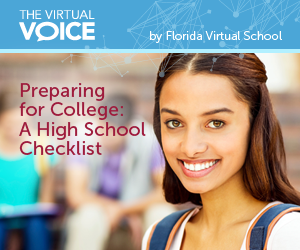Preparing for College: Start Early, Be Consistent, Finish Strong

Many students fall into the trap of thinking college is something they need to start considering their senior year.
Students who wait until then, however, will be much more than a day late and a dollar short (more like four years too late and thousands of dollars short).
The fact is the time to start thinking about college is when you are selecting your freshman courses. It can be argued that it begins much earlier than this even – through the development of soft skills like time management, study habits, and a growth mindset for example, but that is a different post.
We will focus here on a few practical things that students should do each of the four years of high school to be better prepared for the process of applying for college, paying for college, and staying in college. This is by no means an exhaustive list, but rather highlights for each high school year.
FRESHMEN
- Take a Career Exploration Class and/or visit FLVC.org and My Career Shines, a career planning tool to be offered by the Florida Department of Education starting in September 2015
- Take the most rigorous classes you can while still making good grades (Continue all four years)
- Get involved in extracurricular activities (Continue all four years)
SOPHOMORES
- Consider taking the PSAT in October
- Begin researching colleges (majors offered, admissions criteria, cost, size)
- Begin researching scholarship programs
JUNIORS
- Consider possible majors
- Take the PSAT (even if you took it in 10th grade) in October
- Prepare for the ACT / SAT in the Fall (Follow links for test prep materials)
- Take the SAT and/or ACT in March
- Schedule college visits
SENIORS
- Work on college Essays
- Complete the Common Application (typically available August 1)
- Request recommendations (provide resumes to letter writers)
- Apply for Scholarships (check deadlines for schools to which you are applying)
- Complete the FAFSA as soon after January 1 as possible
As mentioned, the above are only highlights. Below are links to additional, more exhaustive resources, and remember, the FLVS School Counselors are here to support you in this process as well!
Additional Resources
The National Association for College Admission Counseling (NACAC):
NACAC consists of nearly 13,000 professionals from around the world dedicated to serving students as they make choices about pursuing postsecondary education. They offer extensive resources for students and parents.
A resource of the U.S. Department of Education, College Navigator gathers admission, retention, graduation, and financial aid data for every college in the country.
A public service initiative that helps middle and high school students prepare, apply, and pay for college. Sponsored by The American Council on Education, the Lumina Foundation, and the Ad Council.
A College Board project connecting students with success stories about preparing, applying, and paying for college.
Post by Dalila Lumpkin, FLVS Part Time Professional Certified School Counselor

 Amy LaGrasta, Flex School Counseling Senior Manager, helps students make informed decisions about courses, career and college options, and the study habits needed for online success. Prior to joining FLVS, she served as the guidance director at Estero High School in Lee County, FL where she was honored with the Teacher of Distinction award.
Amy LaGrasta, Flex School Counseling Senior Manager, helps students make informed decisions about courses, career and college options, and the study habits needed for online success. Prior to joining FLVS, she served as the guidance director at Estero High School in Lee County, FL where she was honored with the Teacher of Distinction award.